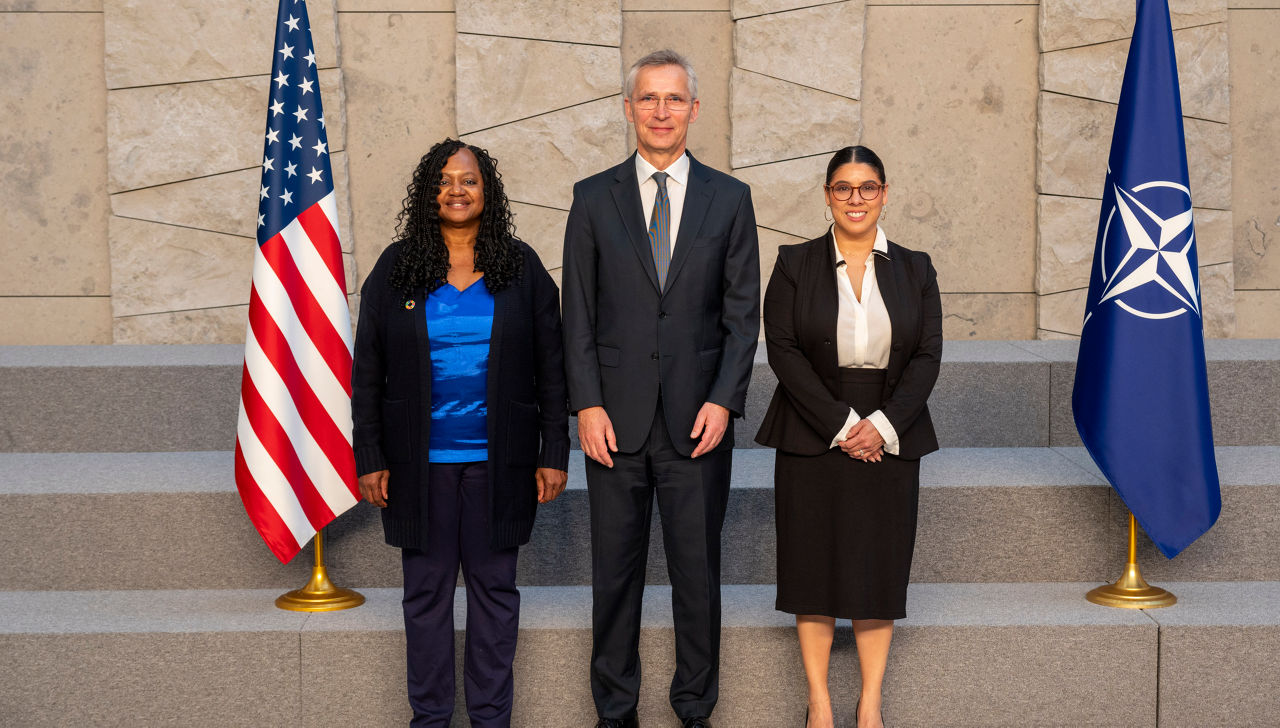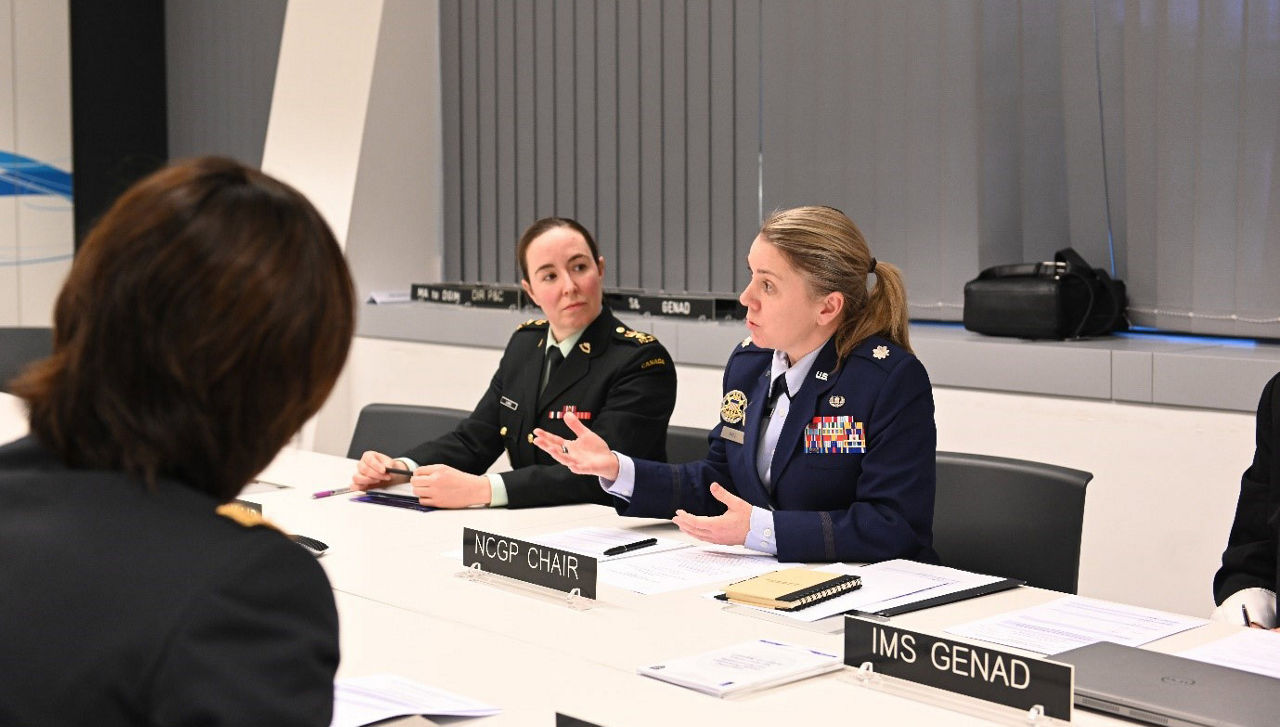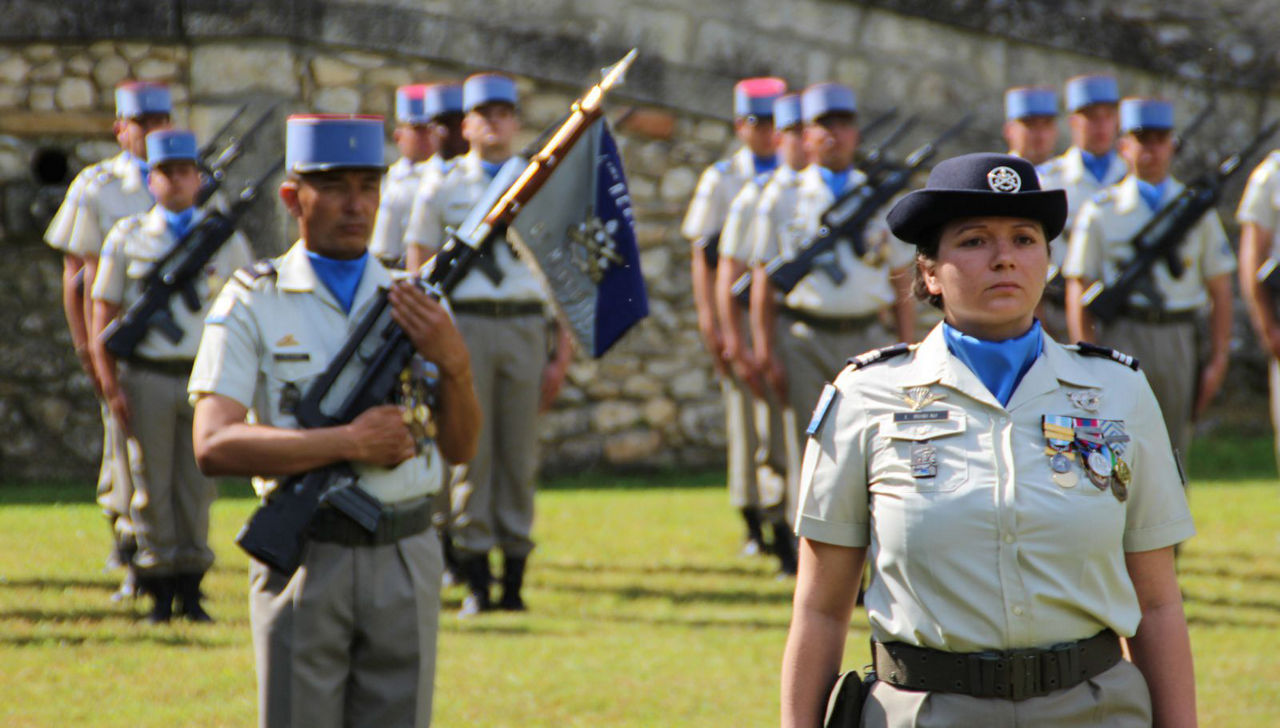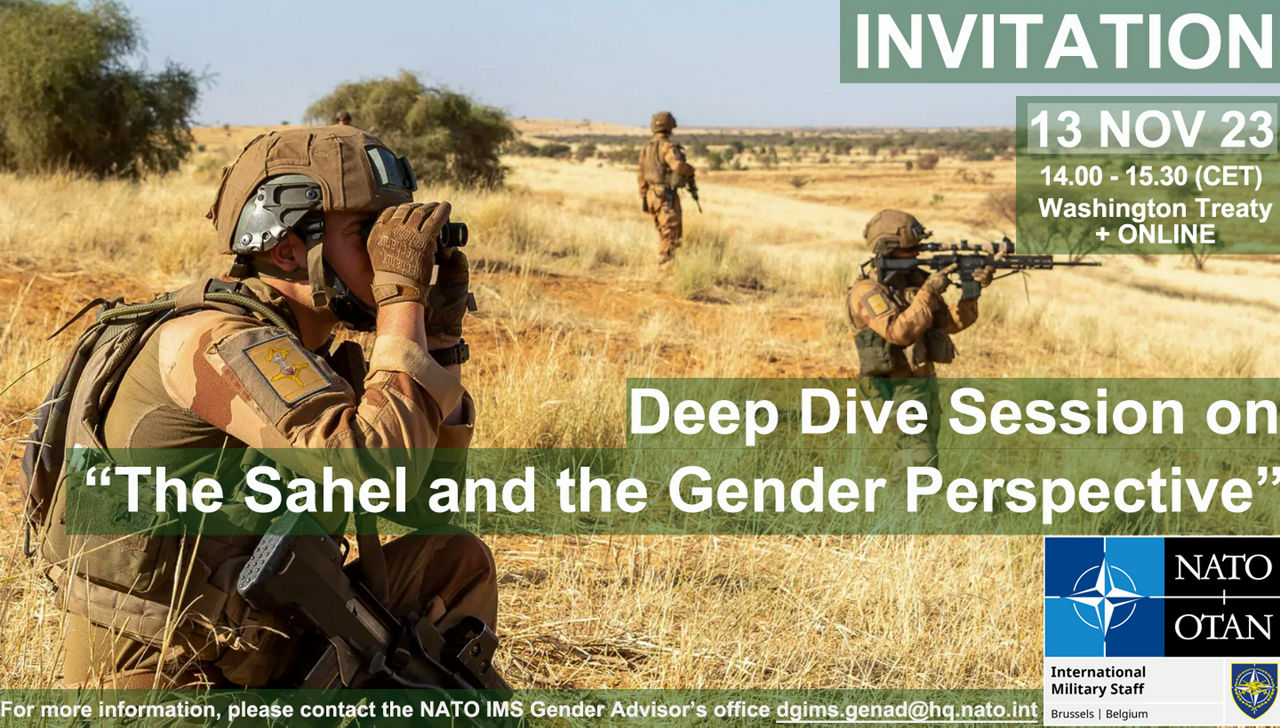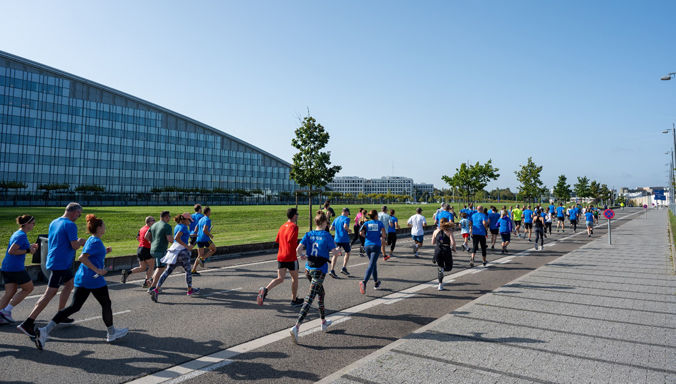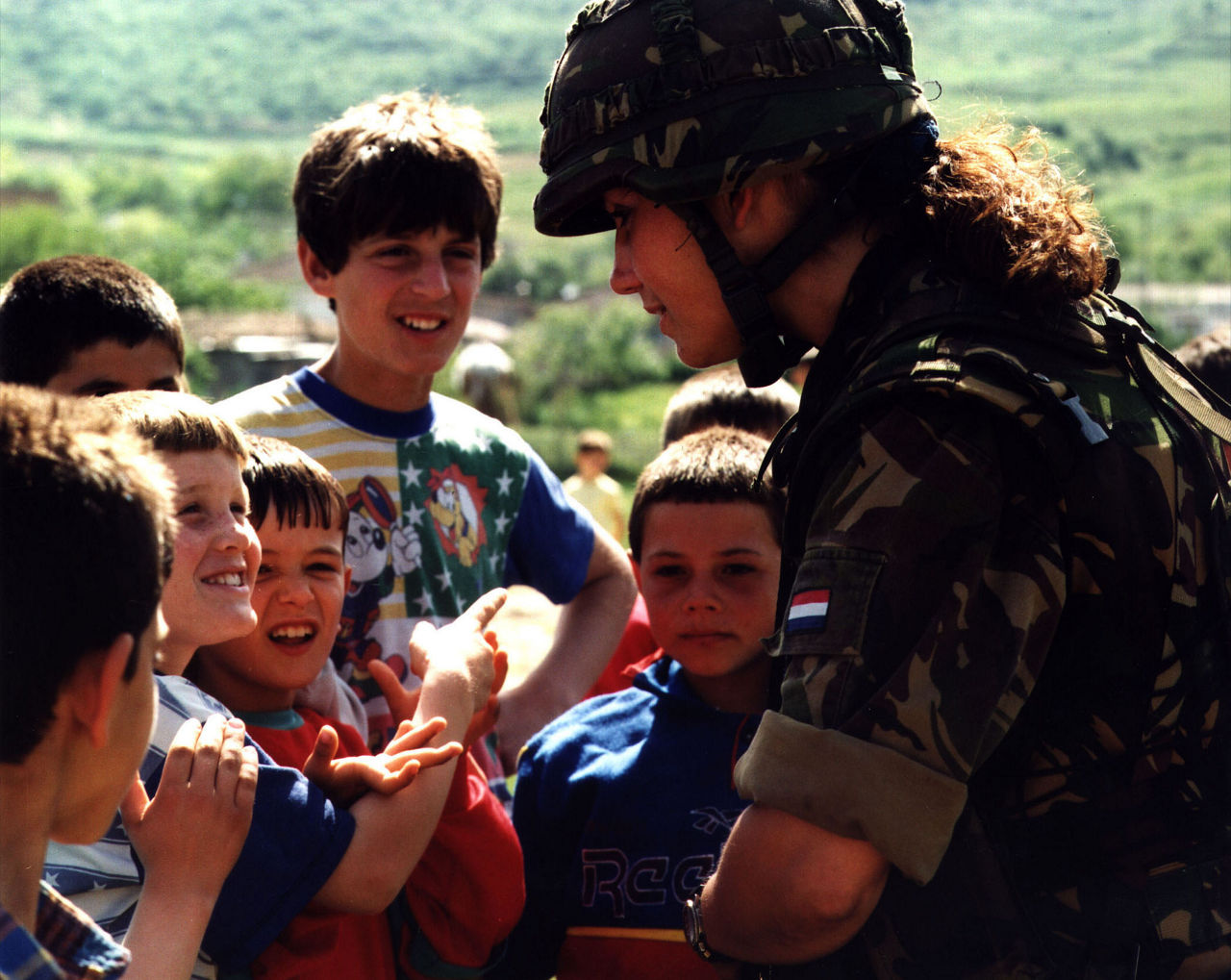Download NATO’s broadcast-quality video content free of charge

Log in
NATO MULTIMEDIA ACCOUNT
Access NATO’s broadcast-quality video content free of charge

Check your inbox and enter verification code
You have successfully created your account
From now on you can download videos from our website
Subscribe to our newsletter
If you would also like to subscribe to the newsletter and receive our latest updates, click on the button below.
Enter the email address you registered with and we will send you a code to reset your password.
Didn't receive a code? Send new Code
The password must be at least 12 characters long, no spaces, include upper/lowercase letters, numbers and symbols.
Your password has been updated
Click the button to return to the page you were on and log in with your new password.
Diversity, inclusion and accessibility at NATO
Updated: 19 April 2024
NATO derives its strength from its talented and diverse workforce. The Alliance’s proactive strategies aim to attract, develop and retain a mix of people with different skills, backgrounds, experiences and cultures. Access to the broadest possible range of talent is essential to generate innovative ideas and insights, and represent the diversity of NATO countries.
- NATO aims to ensure its workforce reflects the diversity of its Allies and strives to maintain a work environment that is inclusive and free from discrimination, harassment or bullying.
- Today, there are approximately 1,200 civilian International Staff (IS) members in NATO Headquarters and another hundred civilians serve in the International Military Staff (IMS).
- NATO’s policies and programmes provide the framework for inclusive, fair and equitable application of employment conditions in support of NATO’s mission.
- The North Atlantic Council endorsed the 2024-2030 Diversity, Inclusion and Accessibility (DIA) Action Plan for the International Staff, which builds off the 2019-2023 Action Plan. It serves as a roadmap for increasing DIA by incorporating research on best practices for creating and sustaining a high-performing workforce that embraces diversity and inclusion, promotes gender equality and empowers all staff members to achieve their full potential.
- Both IS and IMS civilian staff operate under the Civilian Personnel Regulations, which provide that members of staff shall treat their colleagues and others with whom they come into contact in the course of their duties, with respect and courtesy at all times.
Plans and Programmes
The following plans and programmes guide NATO’s overarching diversity, inclusion and accessibility agenda.
Diversity, Inclusion and Accessibility (DIA) Action Plan
The NATO DIA Action Plan sets out policies and practices to promote the development of a diverse and inclusive workforce, and leverages differences to achieve organisational goals. NATO takes proactive and measurable steps to ensure all staff members are treated fairly and respectfully and are given equal access to opportunities and resources. In December 2023, the North Atlantic Council – NATO’s principal political decision-making body – approved the 2024-2030 DIA Action Plan for the International Staff at NATO Headquarters in Brussels, Belgium. The Action Plan serves as a roadmap to guide organisational efforts that improve diversity, equality and inclusion, and promote cultural change.
Gender Balance and Diversity Task Force
The Gender Balance and Diversity Task Force was established according to the mandate agreed by member countries at the 2002 Prague Summit. The Task Force works to coordinate policies, identify barriers and promote activities to build a diverse and inclusive workforce in the IS and civilian IMS workforce.
Under the direction of the Deputy Secretary General, the Task Force started work in February 2003. The first report proposed an original Action Plan, which was noted by Foreign Ministers on 2 June 2003. In consultation with national delegations, the IS and the IMS, the Task Force defined four guiding principles for actively pursuing a diversity policy at NATO Headquarters:
- Ensuring fairness in recruitment and promotion;
- Ensuring the high quality of NATO personnel;
- Respecting the diversity of all Alliance members;
- Agreeing only to set goals and use methods that embody a reasonable challenge.
The Task Force recommended a pragmatic approach with achievable goals. They focused on diversity issues that could be objectively defined and started their work by addressing the question of gender balance. They agreed no quotas would be set since recruitment in NATO is merit-based, and proposed the following objectives:
- To increase the overall number of women employed in the IS;
- To increase the overall number of women applying;
- To increase the overall number of women in managerial positions.
Staff Resource Groups
NATO’s first Staff Resource Group (SRG), PROUD@NATO, was officially established in 2020 to further LGBTQ+ perspectives at NATO. NATO’s SRGs provide opportunities for personal and professional development through mentoring, networking and community involvement. They also organise cultural engagement events to raise awareness for specific issues. At the first conference on LGBTQ+ perspectives in the workplace hosted at NATO Headquarters on 19 March 2021, Secretary General Jens Stoltenberg stated that “Diversity and inclusion is at the heart of who we are and what we do... drawing on all resources and all experiences makes us stronger, and better equipped to face the future”. Since 2022, other SRGs have been created to support NATO’s diverse communities, including Elevate Diversity, Working Parents, GROW Young Professionals and Disability Inclusion.
Flexible work arrangements
NATO offers flexible working opportunities to improve work-life balance and create an environment where people can grow and thrive. This increases productivity, builds employee morale and improves overall staff member engagement.
NATO-wide Mentoring Programme
The NATO Mentoring Programme is designed to remove potential structural barriers while building bonds and connections across organisations and generations to create a sustainable culture that is open, inclusive and non-discriminatory. NATO mentors help participants navigate the unknowns, identify new opportunities and innovative solutions, and develop professionally and personally.
CALENDAR OF EVENTS
21 February
International Mother Language Day
Objective: To celebrate multilingual diversity and create an awareness of the richness of languages through activities and events.
8 March
International Women's Day
Objective: To bring awareness to the call to action for accelerating gender parity.
20 March
International Francophonie Day
Objective: French is one of two official working languages at NATO. This day celebrates the French language and Francophone culture through activities and events.
17 May
International Day Against Homophobia
Objective: To raise awareness of LGBTQ+ rights violations and stimulate interest in LGBTQ+ rights work worldwide.
21 May
World Day for Cultural Diversity
Objective: To increase the understanding of issues around cultural diversity and development among governmental and non-governmental organisations.
August
World Breastfeeding Week
Objective: To demonstrate NATO's support and commitment to nursing mothers.
October
Global Diversity Awareness Month
Objective: To strengthen our understanding and pay tribute to the diverse minds and beliefs held by all cultures in NATO countries.
3 December
International Day for People with Disabilities
Objective: To increase public awareness, understanding and acceptance of people with disabilities.


